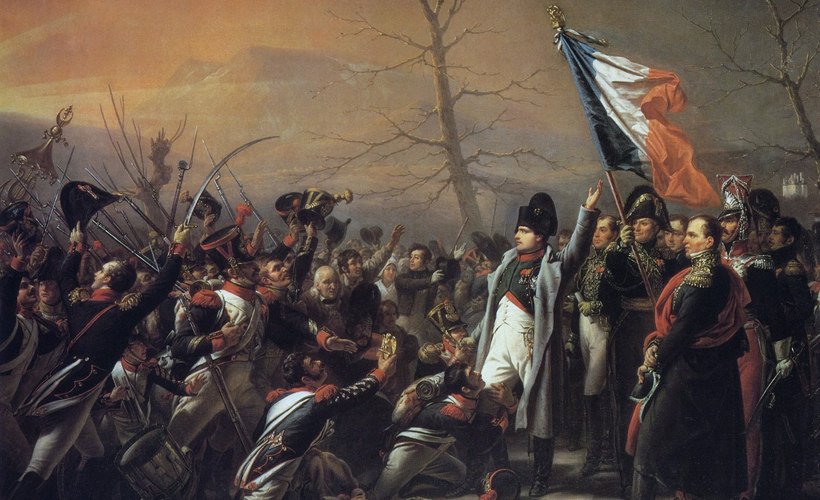Was the French general and emperor of the late 18th and early 19th centuries an enlightened ruler or an authoritarian despot? Be sure to check out Issues & Controversies in History’s complete and unbiased coverage of this issue. Learn more about the issue and check out a sample of the pro/con arguments on both sides below.
Try Issues & Controversies in History today!
THE ISSUE
Born into a minor noble family from the French island of Corsica in 1769, Napoleon Bonaparte took power in France amid the hopes and chaos of the French Revolution, initially as first consul of the French Republic in 1799 and then as emperor in 1804. After helping secure revolutionary France against myriad enemies across Europe, he conquered much of the continent in the early 1800s and put it under French control. In doing so, did Napoleon advance the enlightened ideals of the French Revolution—”liberty, equality, brotherhood”—at home and abroad? Or did he impose authoritarianism wherever he ruled, thereby undermining those ideals?
Argument That Napoleon Was an Enlightened Ruler:
Argument That Napoleon Was an Authoritarian Despot:
While Napoleon ruled France with a firm hand, he did so to protect it against foreign enemies and to provide domestic security and order to a country in chaos. He instituted the democratic advances made by the French Revolution in his Civil Code, which established the equality of all male citizens under the law. He also secured the gains the peasantry had made during the revolution, particularly by redistributing large amounts of land from the nobility to the peasants. He tried to do much the same abroad, sending French armies across Europe to liberate people from kings and nobles. Napoleon’s legitimacy and the success he had as an enlightened ruler spreading republican ideals are proven by the enemies he made—the royalty and aristocracy of Europe determined to stop him and maintain their privilege and power.
Napoleon was less interested in securing and spreading the republican ideals of the French Revolution than he was in creating a political and social order subservient to himself. He declared himself emperor and then created a new nobility loyal to him alone. He hounded political enemies out of the country or put them in jail. He also undid many of the gains of the revolution, curtailing freedom of speech and press, reversing advances in women’s rights, manipulating elections, and re-imposing slavery in French colonies overseas. He sought to place all the nations of Europe under his imperial rule, or that of his appointed lackeys, whether the people in those lands wanted it or not. Napoleon ultimately plunged the continent into a generation of war, all to feed his unquenchable ambition.
Issues & Controversies in History links this pro/con article to rich related resources that enhance the debate. Students and researchers can delve into primary sources that provide context, a topic-specific timeline, a bibliography, and a thought-provoking “What if…” section speculating on how France and the world might be different had Napoleon never been born.
What Is Issues & Controversies in History?
Issues & Controversies in History places students at the center of the great debates and conflicts in U.S. and world history, exploring the issues as the key players saw them or, in some cases, as historians have interpreted them. This comprehensive reference database delivers dynamic, concise, and balanced coverage of a broad range of topics, from slavery, empire, and revolution to race, gender, economy, and disease, all over the globe. By building a deeper understanding of how historical events and conflicts have influenced U.S. and world history over the past 5,000 years, Issues & Controversies in History is a powerful tool for helping researchers analyze primary sources, answer document-based questions, and prepare for history debates and research projects.
Click here to take a free trial of Issues & Controversies in History.
See also:


